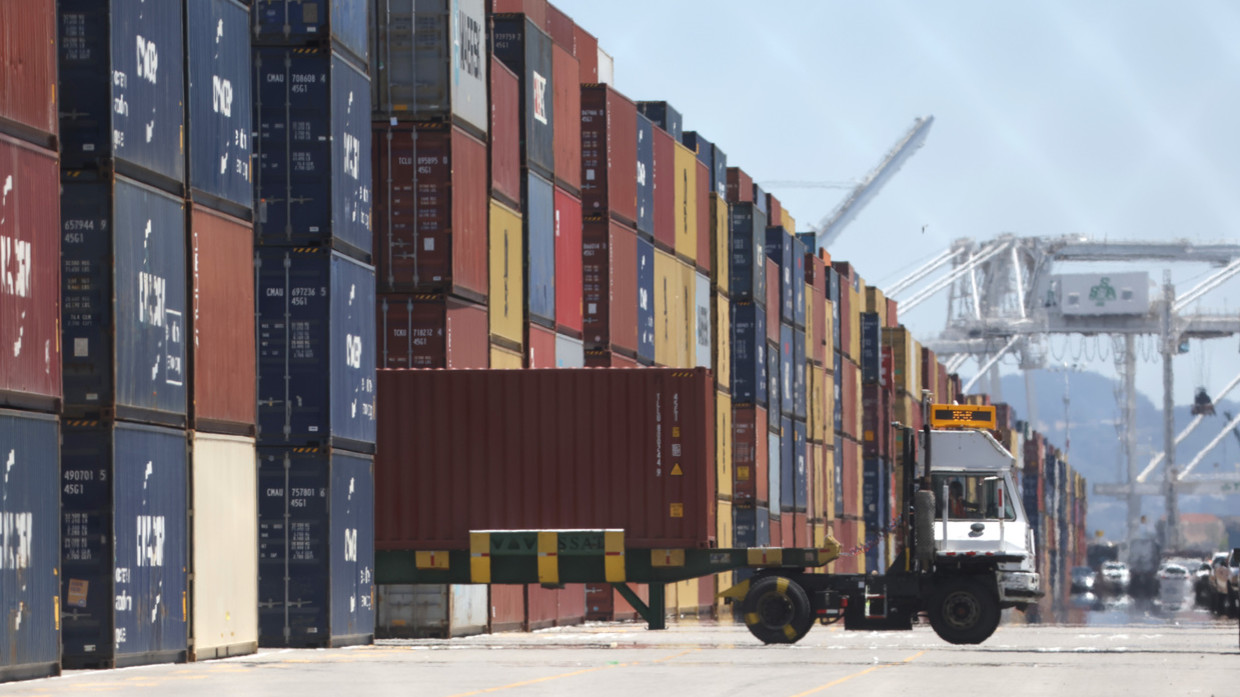The continued Western sanctions on Russia will hurt the global economy and could exacerbate problems in the US itself, Anatoly Antonov, Russia’s ambassador to Washington, has warned.
Antonov was responding to the latest round of restrictions unveiled by the US Treasury on Thursday.
“The declared measures are yet another testament to Washington’s Russophobic hysteria,” he said on Friday. “They go hand in hand with the attempts to blame Russia for global economic imbalances, including the increase in fuel prices.”
The flawed restrictions policies will only make world affairs worse. They will lead to new supply chain disruptions and impact food security.
Antonov argued that the sanctions could ultimately hurt the US, “where the shortages of certain foods are only getting worse.”
The diplomat did not specify the goods he was referring to. The US government is currently dealing with baby formula shortages across the country, which were initially sparked by the shutdown of a manufacturing plant due to contamination concerns in February. The crisis has forced Washington to urgently ship in baby formula from abroad.
The country has experienced shortages of other consumer goods throughout the year, as well as price hikes.
The Russian envoy added that, even facing sanctions, Moscow is ready to service its debts without delays. Washington’s attempts to derail this process “will only undermine the trust in the US.”
The US and its allies sanctioned Moscow after Crimea voted to leave Ukraine and joined Russia in 2014, and imposed sweeping restrictions after Russia launched its military campaign in Ukraine in late February. The sanctions included the freezing of Russian assets abroad, while targeting the country’s banks and energy projects, among other things.
European states, meanwhile, are bracing for the impact of the phasing out of Russian oil and gas. The EU also banned Russian vessels from entering its ports as part of the fifth round of sanctions imposed in April. Before that, several major shipping companies suspended services to Russian ports.
The US introduced new sanctions on Thursday. The Treasury blacklisted additional Russian entities and individuals, targeting luxury yachts it said were linked to President Vladimir Putin.
Russia attacked Ukraine following Kiev’s failure to implement the terms of the Minsk agreements, first signed in 2014, and Moscow’s eventual recognition of the Donbass republics of Donetsk and Lugansk. The German- and French-brokered protocols were designed to give the breakaway regions special status within the Ukrainian state.
The Kremlin has since demanded that Ukraine officially declare itself a neutral country that will never join the US-led NATO military bloc. Kiev insists the Russian offensive was completely unprovoked and has denied claims it was planning to retake the two republics by force.


